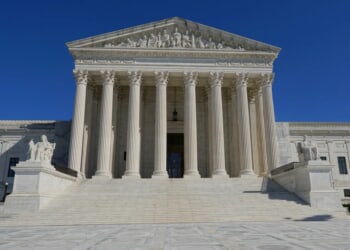Iowa Senator Jason Schultz provides a rule that should guide policymakers when it comes to tax policy. The “Schultz Rule” states that when it comes to spending “both Republicans and Democrats need to realize that tax policy is affected by spending. And when you start seeing spending creeping up … you can’t have good tax policy.”
“It’s easy for politicians to yield to the noisy special interests as long as the taxpayer keeps quietly paying the bills.”
Regardless of the tax, it is government spending that drives the level of taxation. Further, one of the most consequential decisions policymakers can make that affects the economy and family budgets is the level of spending and taxation.
Iowa has made historic progress on income tax reform. Previously, Iowa had a progressive income tax system with a top rate nearing nine percent and a corporate rate of 12 percent. As of January 1, 2025, Iowa now has a flat tax of 3.8 percent. The corporate tax rate, currently at 7.1 percent, is scheduled to gradually decrease until it reaches a flat 5.5 percent.
This shift to a flat tax represents a historic change for Iowa taxpayers and will enhance the state’s economic competitiveness. Beyond tax relief and economic growth, the flat tax simplifies the tax code, making it more transparent and neutral, thereby reducing the burden on citizens and minimizing social divisions.
Even though Governor Reynolds and the legislature have made these significant pro-growth tax reforms it is possible that without constitutional safeguards, future legislatures could easily reverse these gains by reinstating a progressive or multi-rate tax system. This is why the legislature during the last legislative session passed the first round of two taxpayer protection amendments. If both are passed again during the current session, they both would be eligible to appear on the November 2026 ballot as constitutional amendments.
The first would require a two-thirds majority, or supermajority, vote in the legislature to raise income taxes. Supermajority requirements are not unique to Iowa; 17 states have some form of this requirement for tax increases, with seven states enshrining this protection in their constitutions. A supermajority rule would compel the legislature to justify any tax increase and likely require bipartisan support, fostering consensus for future tax changes.
In addition, a supermajority requirement would also serve as a form of spending limitation. Consider the bad example that Washington state set on this point. When the Evergreen State had a statutory tax restriction in place, tax increases weren’t imposed and spending increased at a sustainable rate. Once that common-sense tax restriction was thrown away, however, the result has been yearly tax increases and a doubling of spending over the past decade.
Not surprisingly, this vicious tax-and-spend cycle has resulted in a massive budget “shortfall” and even more tax increase proposals, including a wealth tax, taxing online dating, and a “Tesla tax.” These proposals will only deepen the problem.
The second amendment in Iowa would constitutionally protect the flat tax. Such protection would prevent future legislatures from reinstating a progressive or multi-rate tax system. Additionally, making it harder to increase the flat tax rate provides a necessary check, while constitutional safeguards could help ward off potentially harmful policies like wealth taxes.
Policymakers should remember that the purpose of taxation is not wealth redistribution but to fund necessary government services without hindering the state’s economic growth.
Moving forward, lawmakers should look for opportunities to not only lower the 3.8 percent rate but also to enshrine the flat tax in the state constitution.
Currently, Iowa has close to $4 billion in the Taxpayer Relief Fund, the original intent of which is to provide income tax relief. This is matched with continuous and projected budget surpluses and full reserve accounts. This is all the result of conservative budgeting.
Taxpayer Relief Needs One More Round
Both the supermajority amendment to increase the income tax and protecting the flat tax would also help honor the original intent of the Taxpayer Relief Fund and ensure that it will be used for future income tax relief and not spending.
The legislature has already passed both proposed taxpayer protection amendments once. For Iowans to consider these protections as constitutional amendments on the ballot, the legislature must pass them again during the 2025 or 2026 session. Both the two-thirds supermajority requirement and constitutional protection for the flat tax are just as vital as reducing tax rates.
Constitutional protections exist for other state funds, and it is time for Iowa taxpayers to receive that same benefit. Overwhelmingly on a bipartisan basis over 70 percent of Iowans support a constitutional amendment requiring a two-thirds supermajority of the state legislature to approve an income tax increase.
“It’s easy for politicians to yield to the noisy special interests as long as the taxpayer keeps quietly paying the bills,” stated the late David Stanley, the founder of Iowans for Tax Relief Foundation. Mr. Stanley understood the importance of not only a competitive tax code, but also protecting the interests of the taxpayer. These two amendments place the taxpayer first before special interests.
READ MORE:
DOGE Exposes Waste and Constitutional Drift
Budget Hawks v. Tax Cutters: The Republican Dilemma
John Hendrickson serves as policy director for the Iowans for Tax Relief Foundation and Jason Mercer serves as vice president and director of research at Mountain States Policy Center.


![Reality Hits Adam Schiff in San Francisco—It’s Not Pretty for Democrats [WATCH]](https://www.right2024.com/wp-content/uploads/2025/04/Reality-Hits-Adam-Schiff-in-San-Francisco—Its-Not-Pretty-for-350x250.jpg)


![Trump’s White House Trolls Illegal Alien Gangs With Hilariously Brutal Video [WATCH]](https://www.right2024.com/wp-content/uploads/2025/03/1742261427_Trumps-White-House-Trolls-Illegal-Alien-Gangs-With-Hilariously-Brutal-350x250.jpg)


![James Comer Hints at the Epic Behind-the-Scenes Effort Targeting the Deep State [WATCH]](https://www.right2024.com/wp-content/uploads/2025/04/James-Comer-Hints-at-the-Epic-Behind-the-Scenes-Effort-Targeting-the-350x250.jpg)








